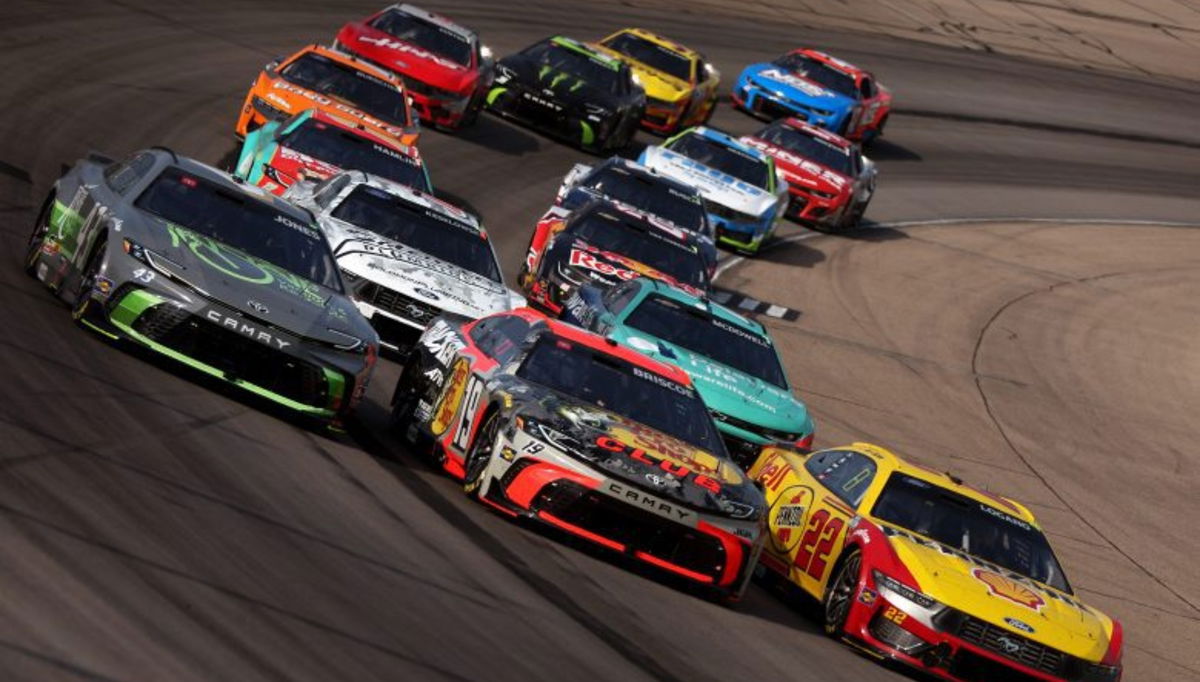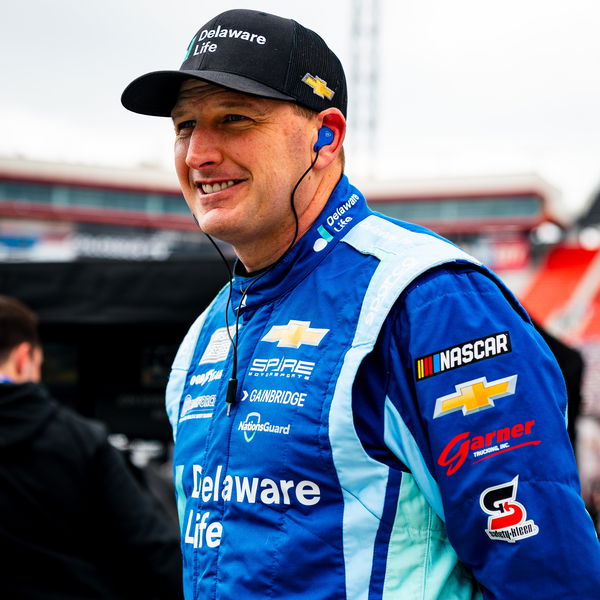
Imago
via NASCAR.com

Imago
via NASCAR.com
Michael McDowell is a famous veteran of the NASCAR Cup Series and the 2021 Daytona 500 winner. He even signed a multi-year drive deal for Spire Motorsports beginning in 2025. The NASCAR driver has more than a decade of top-level starts. He’s also spoken publicly about wanting stability and a chance to race for many more seasons with Spire. After Spire announced a formal development program and the signing of 15-year-old Tristan McKee earlier this year, McDowell recently made an offhand remark about a possible “replacement”, altering the usual victory lane chatter into an immediate talking point. That matter matters because it converts one ARCA debut into a wider conversation about generational transition within a single team.
Watch What’s Trending Now!
McDowell has also been publicly invested in Spire’s driver development push. The team has made clear that bringing young talent through late models, Trans Am TA2, and select ARCA starts is a strategic priority. Spire signed McKee to a driver development deal in January and placed him into a busy 2025 program. This program included a late model, TA2, and a planned ARCA debut at Watkins Glen. The recent result at Watkins Glen narrowed the gap between praise and practical concern about roster futures. The victory saw McKee win on his ARCA debut five days after turning 15.
McDowell is full of praise for his potential replacement
Speaking recently in an interview, McDowell admitted to what he was doing at the age of 15. “Not winning at Watkins Glen,” he said. He added that McKee “rose to the occasion yesterday… and to do that at 15 years old is extremely hard with a tremendous amount of pressure of it being his first race.” That blend of awe and recognition of the difficulty framed his later joke about being replaced. McDowell reminded listeners that even prodigies face steeper climbs at each level. “It’s hard because… if you just look at Joey Logano, you look at Kyle Larson, you look at all the young guys at that 14, 15, 16 age, but as you take that next step… it just gets harder and harder and harder.” Tristan McKee held his nerve for a win when polesitter Brent Crews suffered a late-race electrical problem.
It was in that spirit that McDowell pivoted from praise to playful self-awareness. “Obviously, I’m vested here at Spire and plan on being here a long time,” he said. “And we’ll have a part in picking my replacement, which it looks like my replacement’s been picked. The faster he gets through all these series, the faster I’m going to be out of the seat.” He quickly grounded the humor with a warning about not rushing development: “It’s easy for us to all do that…Sometimes that makes it a little bit too much because you don’t get all the fundamentals that you need to progress to the next level.” McDowell acknowledged that the teenager’s speed is undeniable. But it is the team’s responsibility to make sure his rise is sustainable.

Imago
@SpireMotorsport/X
Looking ahead, McKee’s path through 2025 is becoming more defined. Spire’s planning includes tailored race to nurture growth without haste. Meanwhile, McDowell continues his Cup efforts under his current contract. His “replacement” remark provides a revealing glimpse into how team dynamics shift when a rookie disrupts the expected order. In the end, the real story lies in how Spire manages McKee’s climb.
Michael McDowell on NASCAR data sharing and the SVG factor
Michael McDowell, 2021 Daytona 500 champion and current Spire Motorsports driver, races in NASCAR’s open-data era. Drivers now have full access to each other’s telemetry. Teams can study brake points, throttle traces, and corner speeds from any car. The goal was to “level the playing field.” But McDowell says it hasn’t. Even with years of experience, turning raw data into speed isn’t simple. Especially when facing road course ace Shane van Gisbergen.
McDowell’s analogy is sharp. Having another driver’s data is “like watching somebody work out on social media. It doesn’t make you fit.” Data can show “where I’m getting beat,” but duplicating it is hard. Driving styles differ. Muscle memory is ingrained. Car setups vary. Even teammates in near-identical cars can’t match each other’s feel. McDowell says that’s why shared data doesn’t erase the gap between good and great.
SVG has swept the last three NASCAR road course races. Some think he’s far ahead of the field. McDowell disagrees. In Cup racing, “a tenth of a second can separate first from fifth.” He says SVG’s strength comes from execution and details, not raw pace. McDowell warns about the mental game. Too many drivers, he says, show up already feeling “beat” before the green flag drops.
That attitude, McDowell says, is more dangerous than SVG’s lap times. No race is over until it’s run. No sheet of telemetry can replace preparation, adaptability, or confidence. In NASCAR’s open-data era, McDowell’s message stays simple. Don’t mimic numbers. Master your craft. Execution wins races over imitation.


